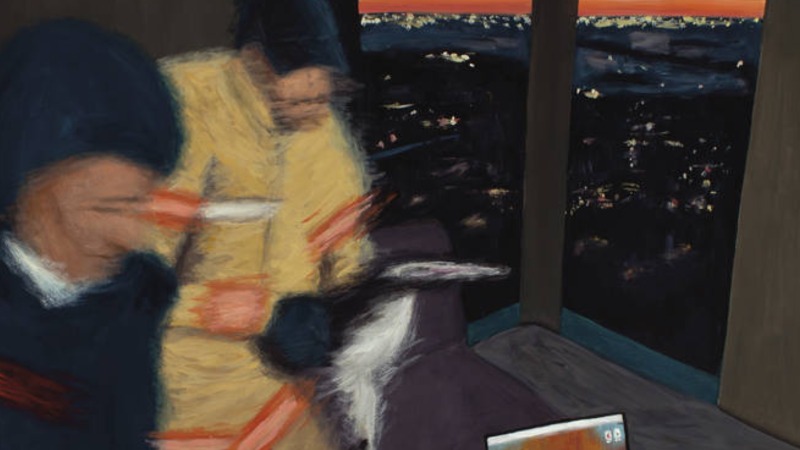Friendship Find a Middle Ground on Caveman Wakes Up
The Philadelphia band’s new LP trends away from the clear-cut Americana elements of their previous efforts, sitting between that and their sparser, more electronically-based work.

The band Friendship is a vanguard, finding initial roots in North Carolina—with peers the likes of Wednesday, Sluice, and Fust, to name a few—and a connective tissue of fans stretching a greater distance. The Philadelphia quartet’s full-length introduction was Shock Out of Season in 2017, but they didn’t start making true waves until their Merge Records debut, Love the Stranger, five years later. Their latest effort, Caveman Wakes Up, is a record trending away from the clear-cut Americana elements of their previous work, sitting between that and their sparser, more electronically-based Dreamin’. With a brief listen, one can hear that Friendship frontman and songwriter Dan Wriggins is a modern-day successor to the late David Berman: his low timbre ranges from growling to purring, treading the line between singing and speaking no-frills; his anecdotal lyrics are set to a backdrop of twangy rock.
Berman once sang, “Songs build little rooms in time.” That seems to be the modus operandi of Wriggins’ songwriting style up to this point, too. He couches extracted conclusions and memories with particular physical perceptions and observations that provide a contextual (and textural) background (“Reconnected trailer hitch / Rerouted drainage ditch, tree of heaven in the concrete”). And if Friendship’s songs are rooms, then they have assembled and arranged the furniture in a way that immerses the listener with distinctive intimacy. Wriggins’ lyrics are succinct, gathering most of their flavor from how he enunciates, stressing a syllable over multiple measures (“Salvage Title,” “Artex”), or descending from “Elaborate dreams unremembered / Hollow skulls” to wordless, breathy notes at the end of “Hollow Skulls.” The vocals aren’t melodically dynamic, but they play well to Wriggins’ conversational posture.
Wriggins is most effective in conjuring familiar images to many of us; his lyrics give off a “subterranean everyman Jonas Mekas” feeling, where they drift between candid and personally significant observations to be later bookended by general insight. The specificity of place that holds these insights reveals the profundity of everyday living for him, finding the answer to the question of “What’s loving you going to entail?” amidst consistently seeing patterns in an Artex ceiling, or asking “Who’s that monster I’ve been living with playing Resident Evil?” while contemplating the recent state of one’s dream life and the world around them.
-

-

-

-

-

-

-

-

-

-

-

-

-

-

-

-

-

-

-

-

-

-

-

-

-

-

-

-

-

-

-

-

-

-

-

-

-

-

-

-








































